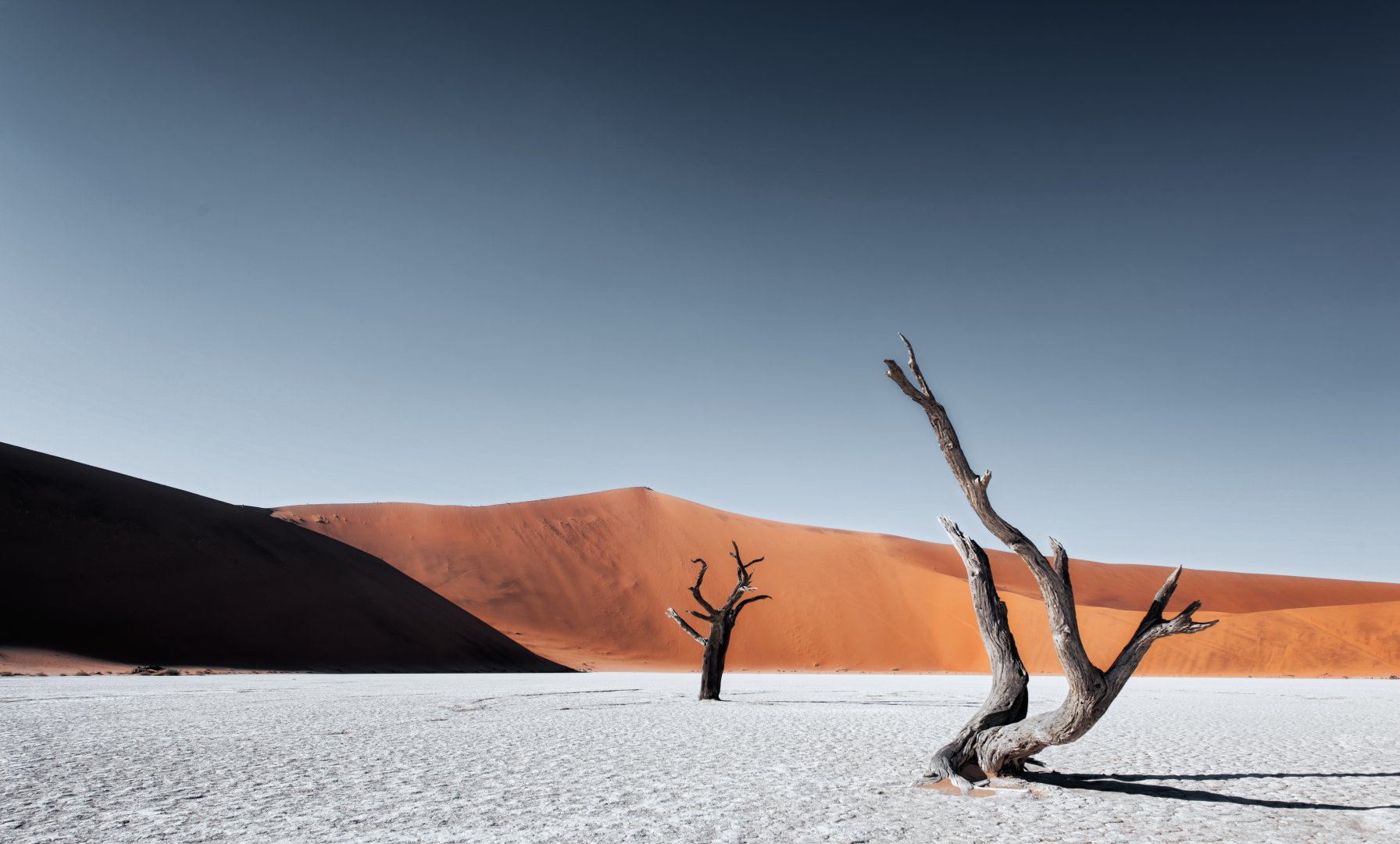
The Gabes Shipwreck: yet another disaster for the local fishermen
Inkyfada tells the story of the oil tanker that sank off the coast of the Tunisian industrial city Gabes, reigniting concerns over oil spills in an already heavily polluted region. The immediate danger has supposedly passed, but this does not necessarily reassure the local fishermen: their working conditions have been steadily deteriorating for years due to pollution.
On 16 April 2022, an oil tanker sank a few kilometres outside the Gabes port. According to the evacuated crew members, 750 tonnes of oil were set to spill off the coast of Tunisia. The concern is palpable. An oil spill would be yet another ecological disaster for this already stricken region.
To limit the risks, the crew at the Gabes port followed protocol, supported by Italian reinforcements. A few days later, the disaster finally appeared to have been averted. The army announced that the ship, which was probably carrying contraband, was full of water.
The story still leaves plenty of questions unanswered. An investigation has been opened and the crew members have been detained. However, beyond this particular event and all the attention it has attracted in the press, the fishermen of Gabes have been suffering from the pollution of the Groupe Chimique Tunisien for years.
This article was originally published on 5 May 2022 by inkyfada. Through combining explanatory and contextualising articles with data journalism, portraits and investigative and in-depth reporting, inkyfada aims to provide accessibility to parts of society that too often remain hidden from the general public, contributing to a better understanding of the world around us.
Some fishermen expressed concern upon seeing the oil that leaked from the shipwreck engine, while others had already been disheartened by the state of the sea. Every day, the Groupe Chimique Tunisien dumps thousands of cubic metres of phosphogypsum, mixed with fresh water, into the sea. Waste is amassing on the beaches. The seabed has been overexploited by fishing over the last few decades. The riches of the Gabes Gulf are at risk.
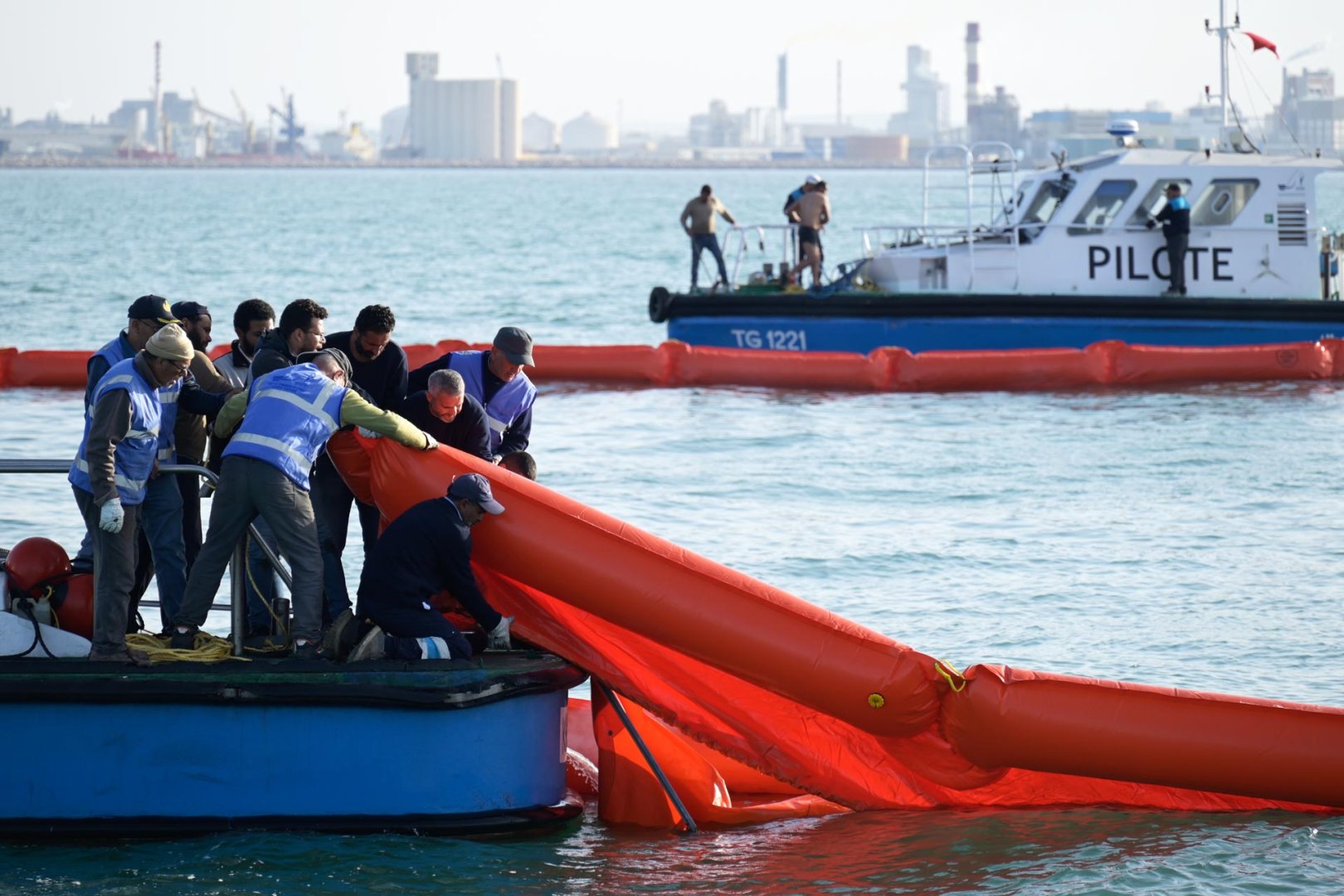
On 16 April 2022, the Xelo oil tanker ran aground off the Gulf of Gabes. The oil, which most likely originated from the engine, leaked from the ship, but was contained by a boom during the emergency response. Gabes, 19 April 2022. Photograph by Morgane Wirtz / Hans Lucas.
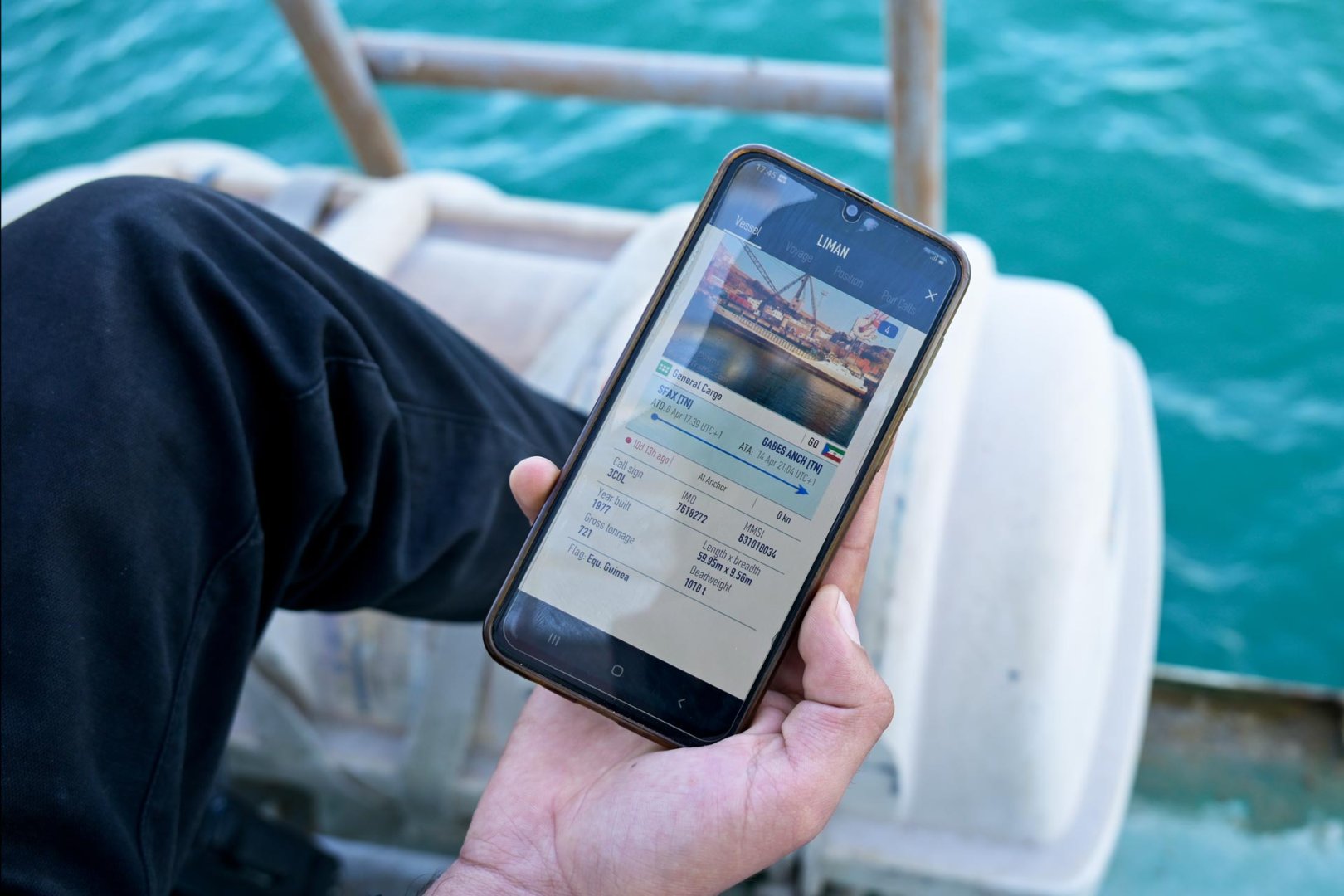
The circumstances surrounding the sinking of the Xelo tanker are suspicious. Apparently, the ship, which was previously known as Liman, had recently changed its name, and there is a lot pointing to the fact that it was a smuggling ship. Gabes, 19 April 2022. Photograph by Morgane Wirtz / Hans Lucas.
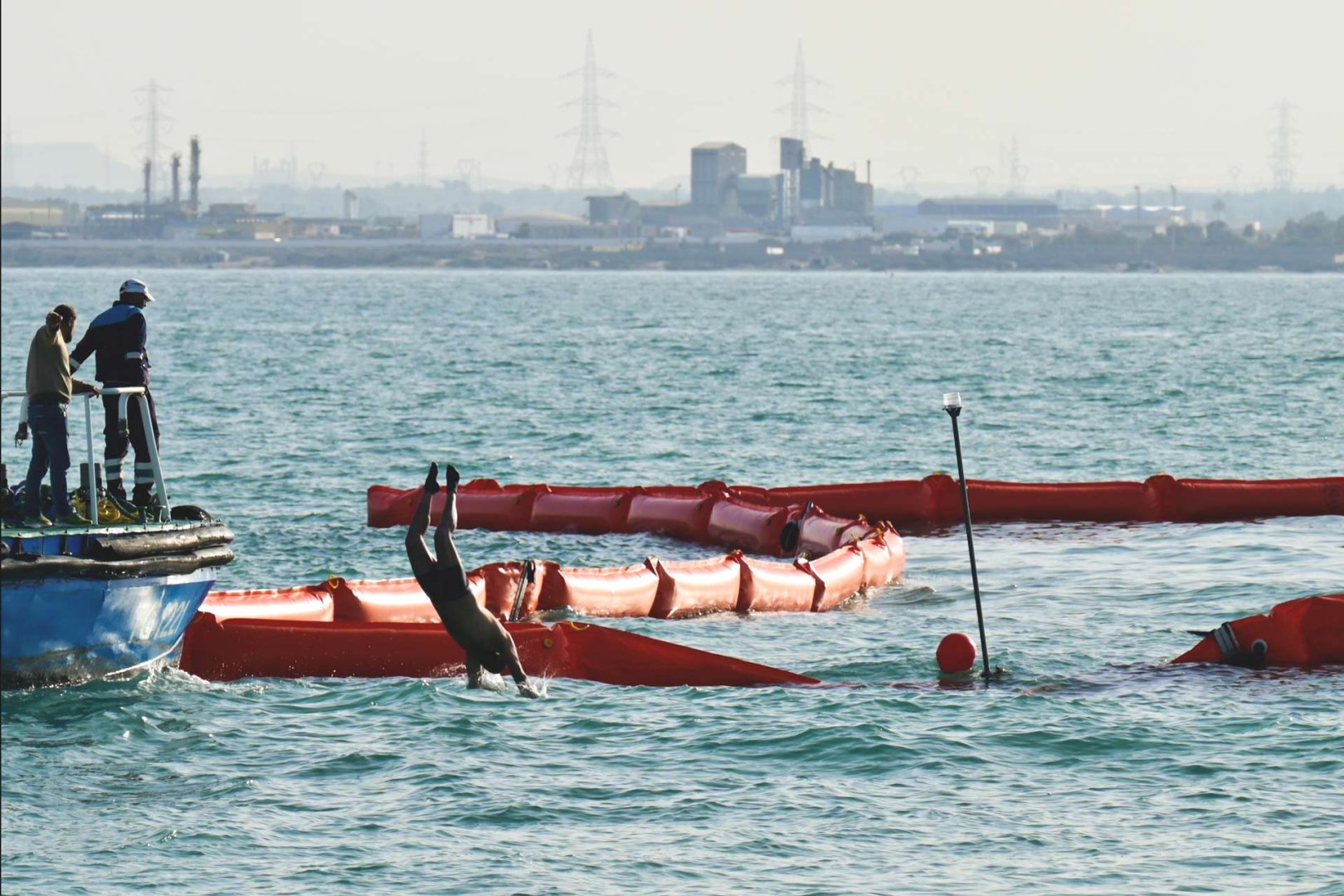
A sailor from the Gabes port jumped into the water to help his colleagues install a safety boom around the shipwreck to prevent an oil spill. He spent nearly an hour swimming in the 18°C water. Gabes, 19 April 2022. Photograph by Morgane Wirtz / Hans Lucas.
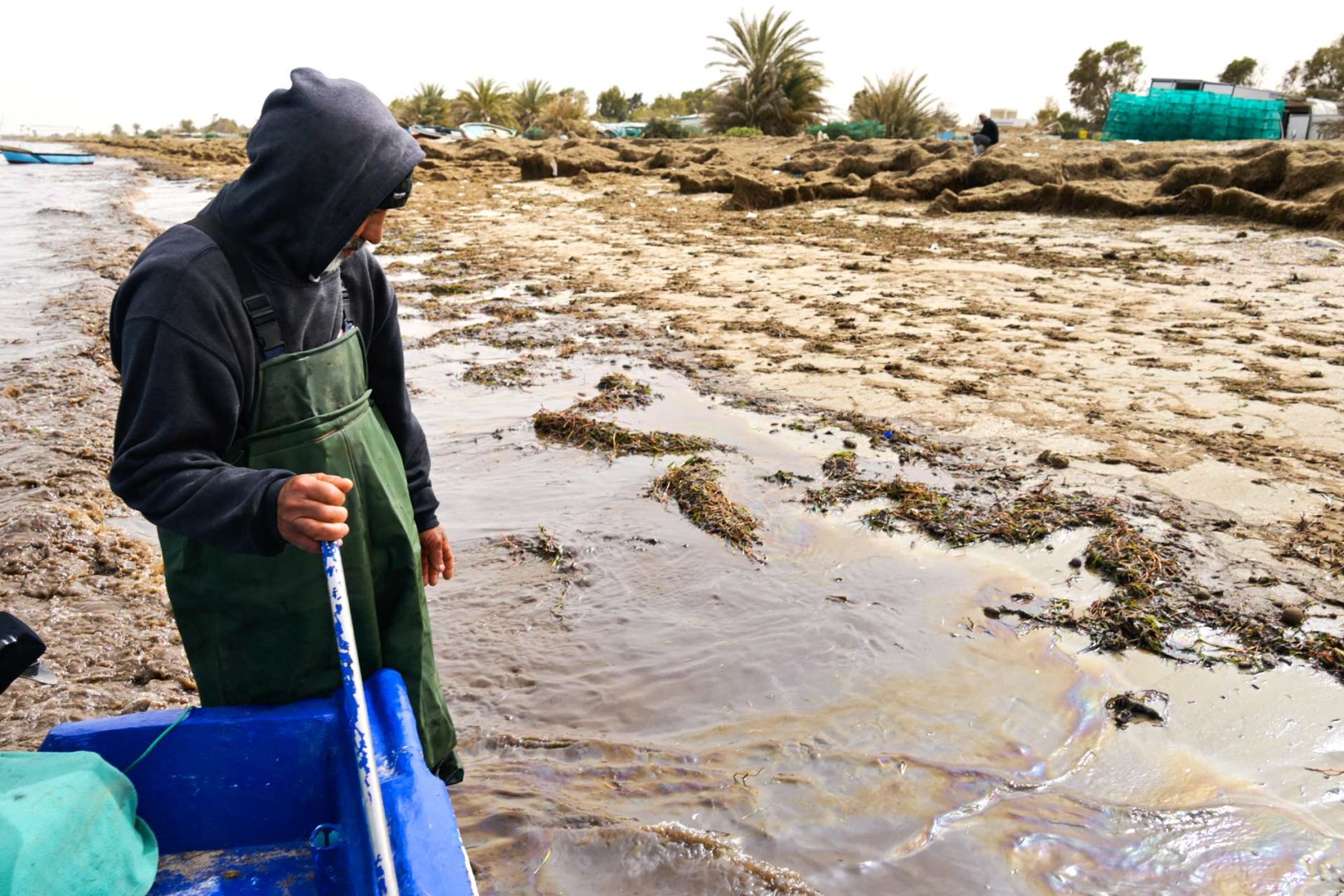
Despite the boom that was installed around the Xelo shipwreck, a small amount of oil still leaked into the water. Fathi, a fisherman, observes the phenomenon. Ghannouch, 20 April 2022. Photograph by Morgane Wirtz / Hans Lucas.
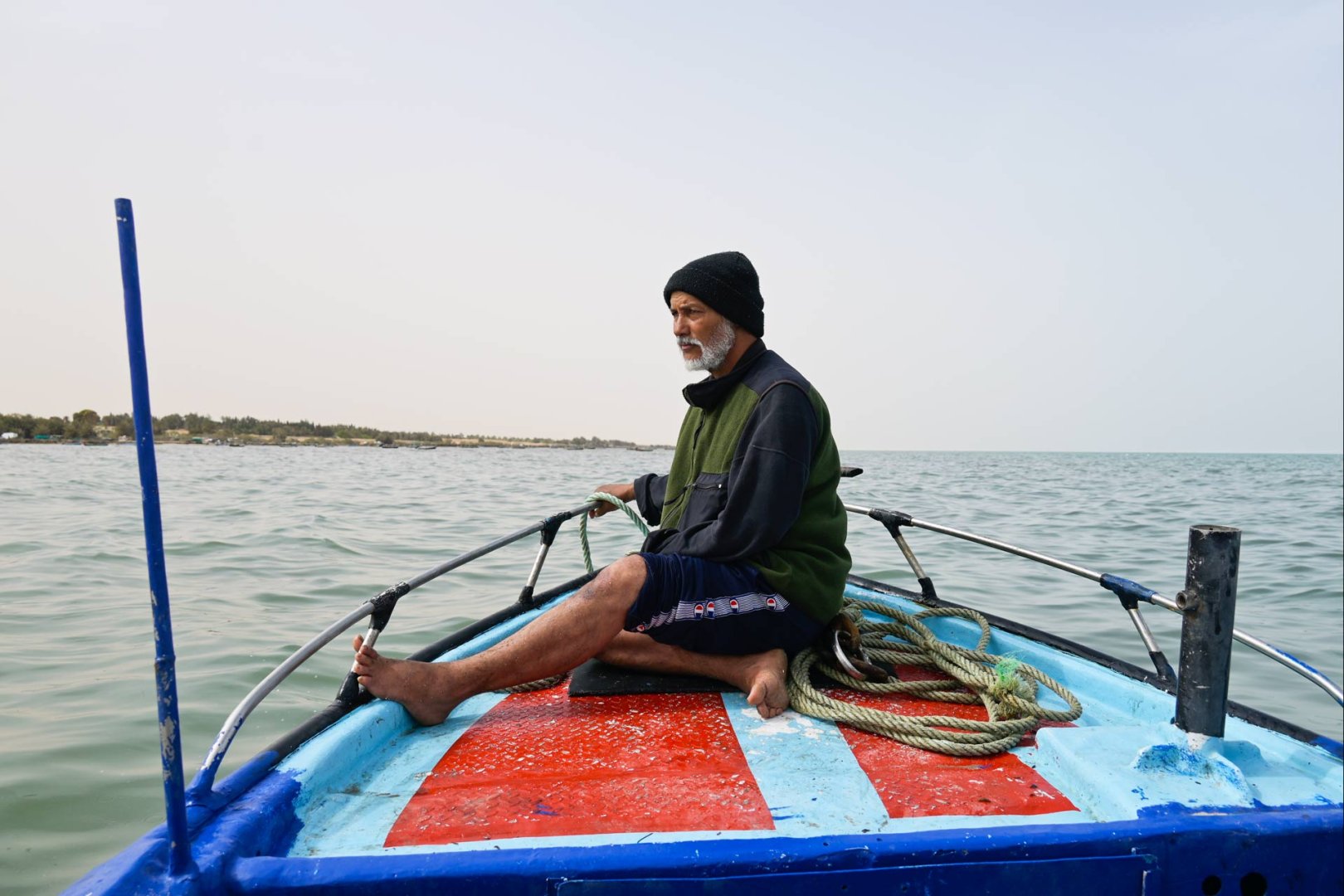
Arif, also a fisherman, observes the thin layer of oil that accumulated on the surface of the sea as the result of the Xelo shipwreck. Ghannouch, 20 April 2022. Photograph by Morgane Wirtz / Hans Lucas.
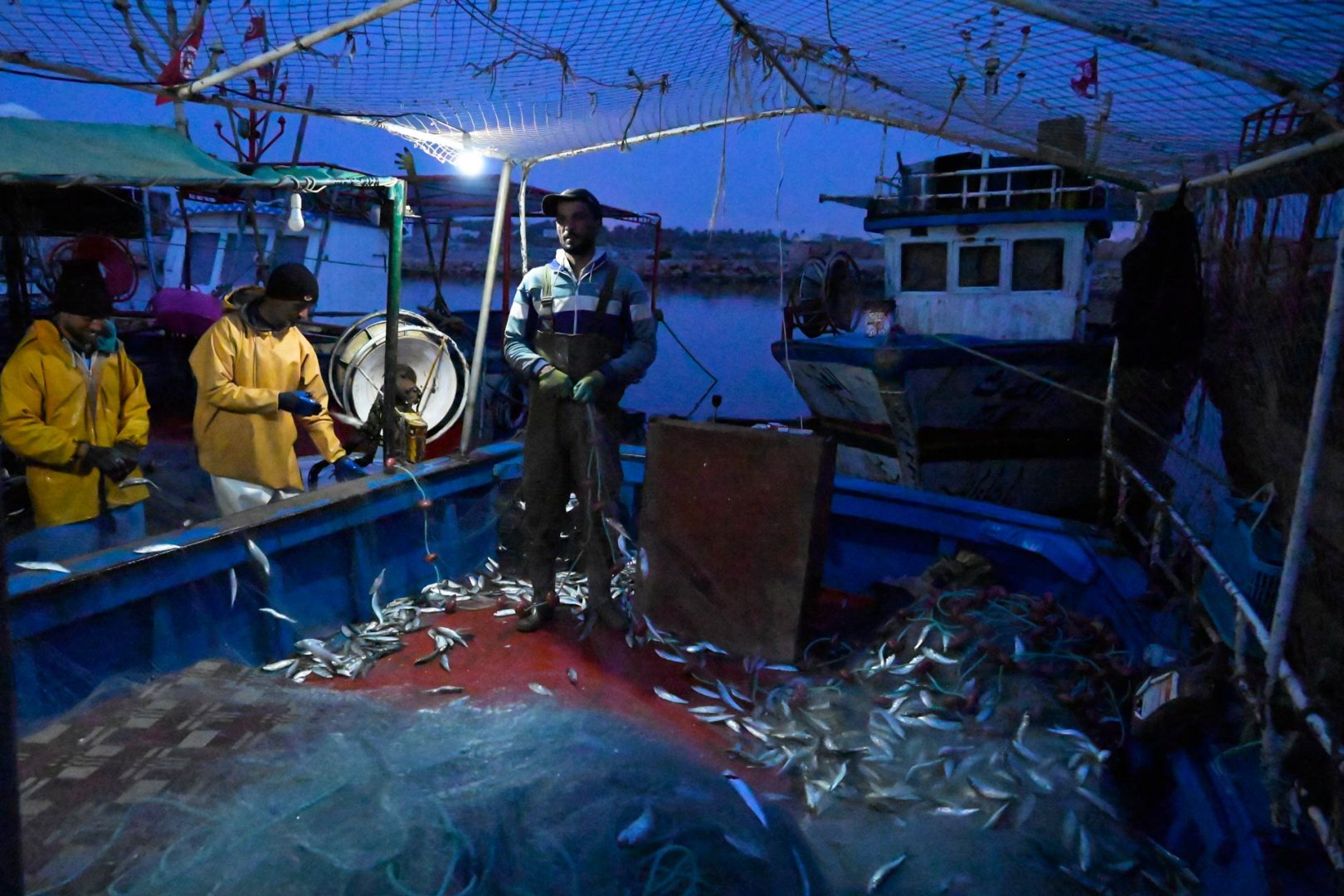
The Fathia crew just returned to the Gabes port. At sea, they spotted oil spills from the wreck. “We are happy with what we fished today, but our work is really hard,” says Alweer, one of the fishermen. Gabes, 21 April 2022. Photograph by Morgane Wirtz / Hans Lucas.
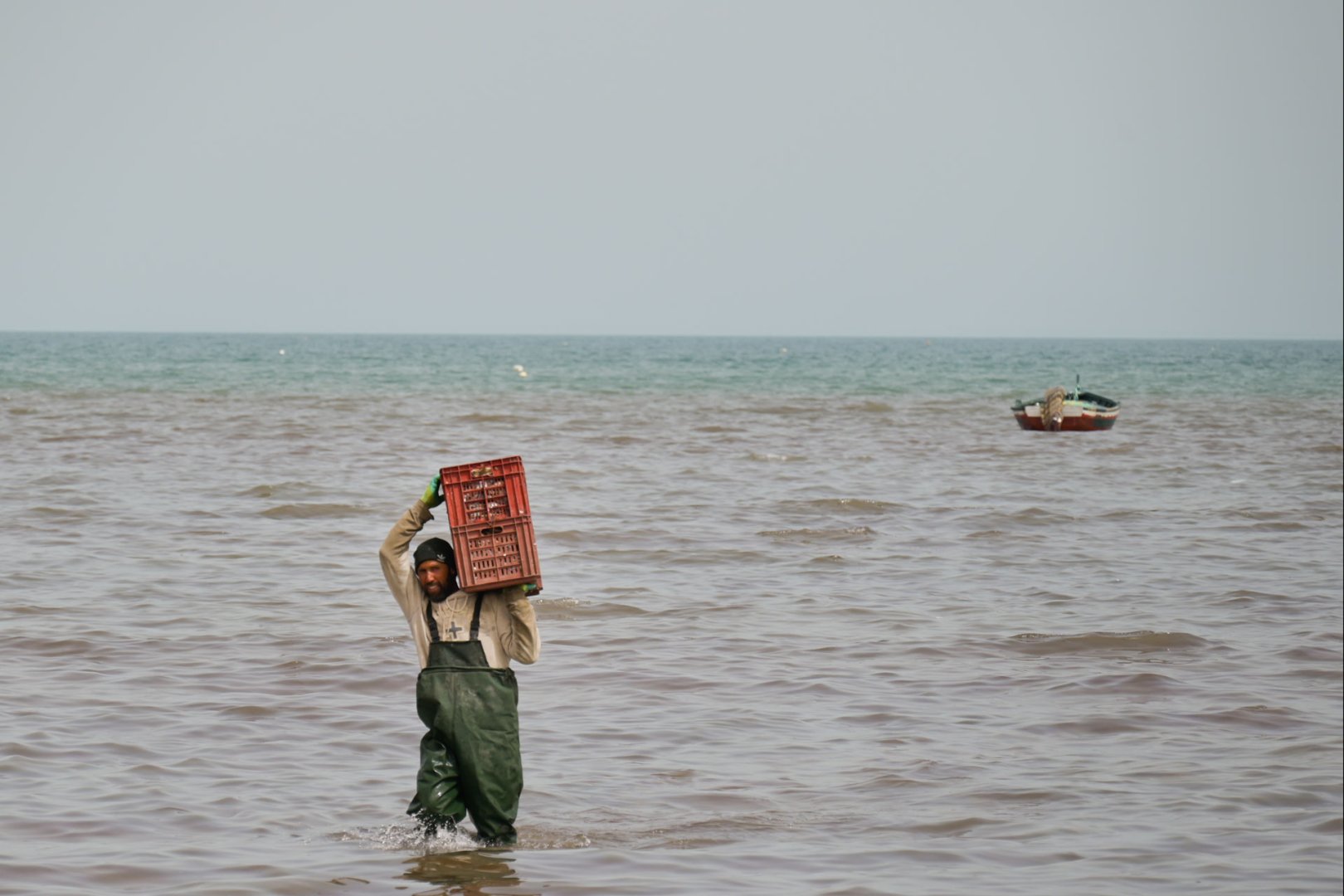
A fisherman carries two crates of crabs to the beach. Nicknamed “Daesh”, this new species is very invasive. The crabs damage the fishing nets and harm the cuttlefish and shrimp, making them unmarketable for the fishermen. However, they decided to catch them as well, and are now making a profit off of them. Ghannouch, 20 April 2022. Photograph by Morgane Wirtz / Hans Lucas.
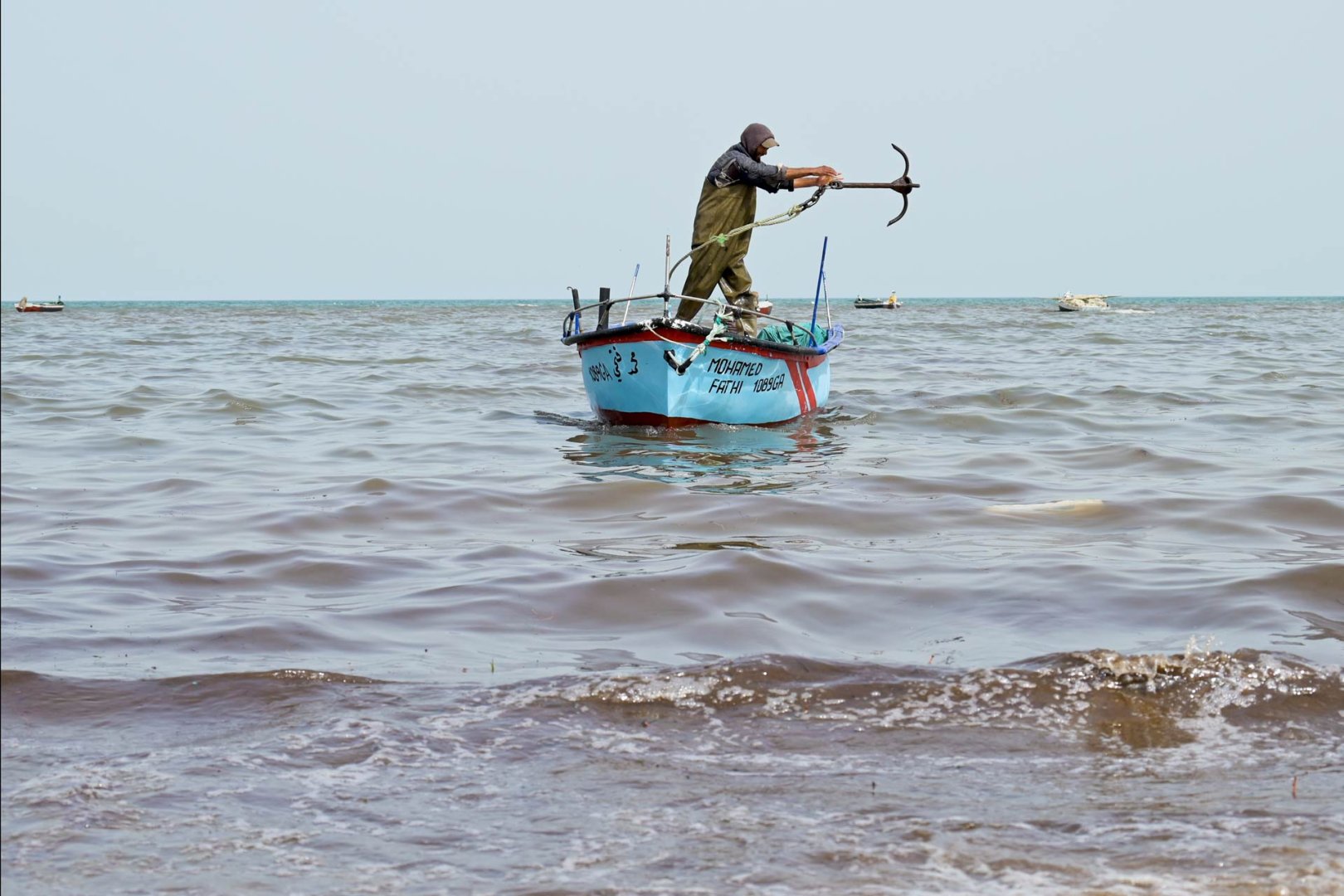
Fathi, who has been fishing since he was a child, laments the destruction of the seabed. “There used to be a lot of fish. Now it’s decreasing every year,” he says. Ghannouch, 20 April 2022. Photograph by Morgane Wirtz / Hans Lucas.
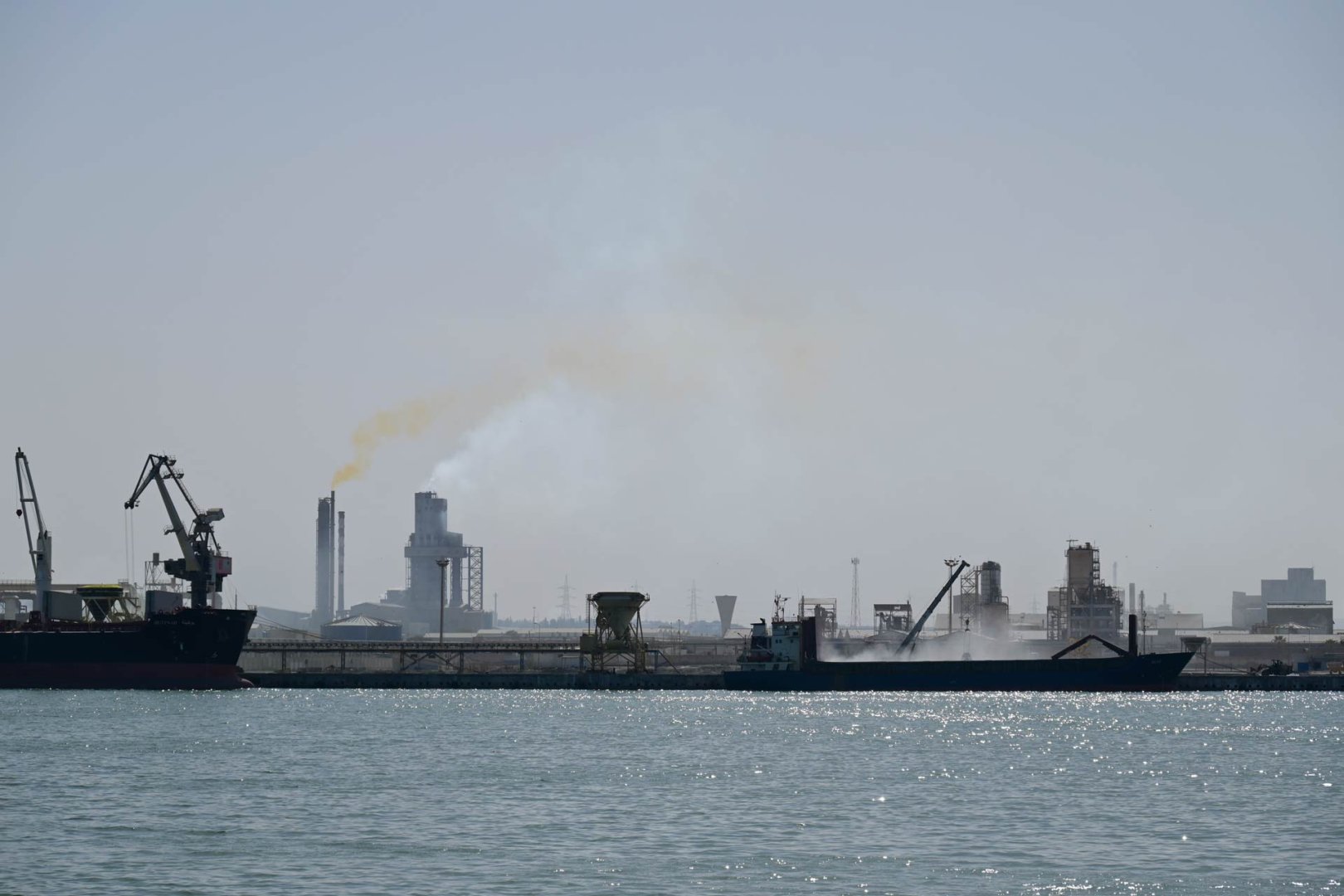
With or without the shipwreck, the Gulf of Gabes is very polluted, mainly because of the Groupe Chimique Tunisien, which has been processing phosphate since the 1970s. The smell is foul for several kilometres surrounding the chemical port, and it is hard to breathe. Gabes, 19 April 2022. Photograph by Morgane Wirtz / Hans Lucas.
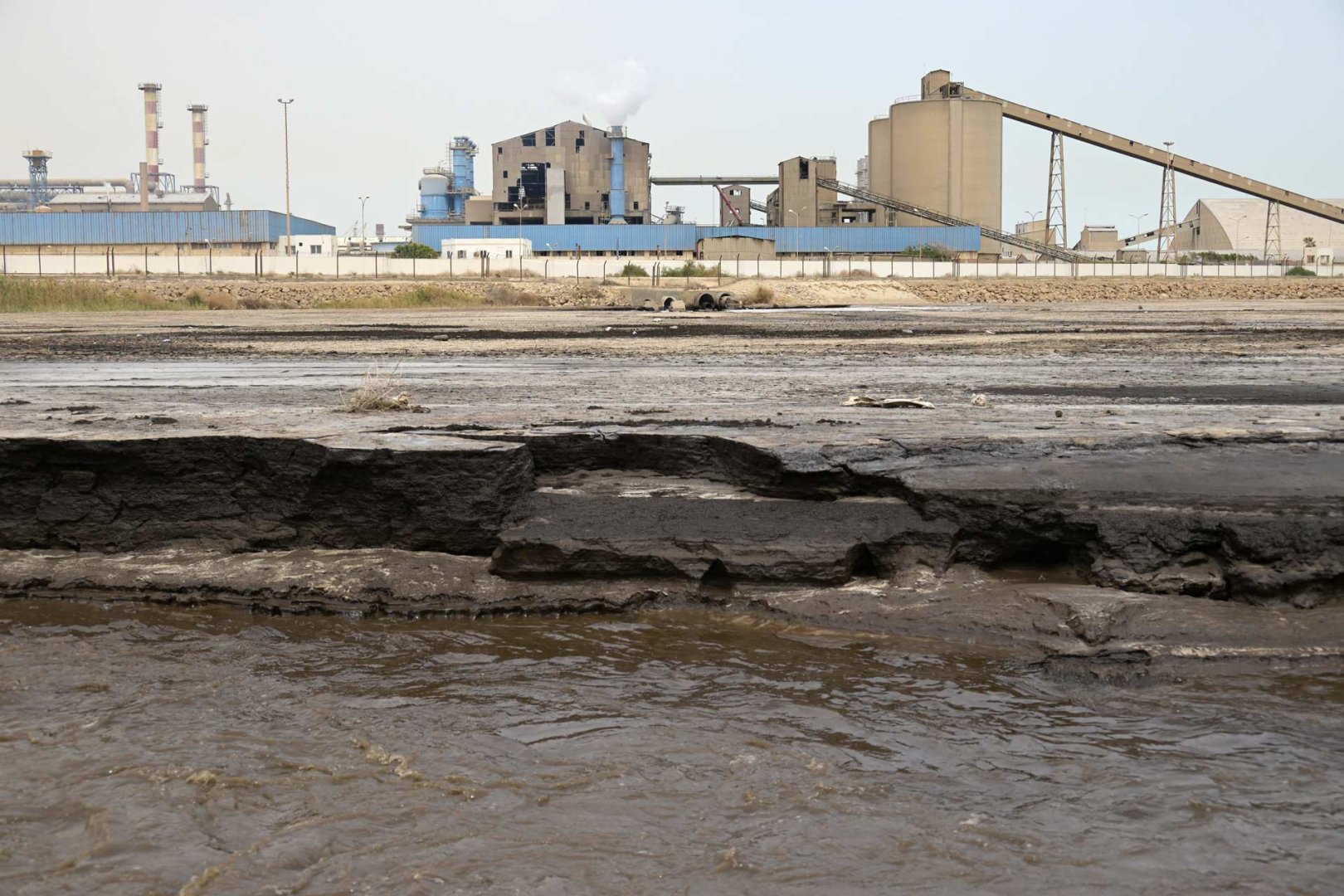
Every day, 42,000 cubic metres of phosphogypsum mixed with fresh water is discharged into the Mediterranean Sea by the Groupe Chimique Tunisien, according to the Tunisian Southern Wetlands Protection Association [Association sauvegarde des zones humides du Sud tunisien]. Gabes, 20 April 2022. Photograph by Morgane Wirtz / Hans Lucas.
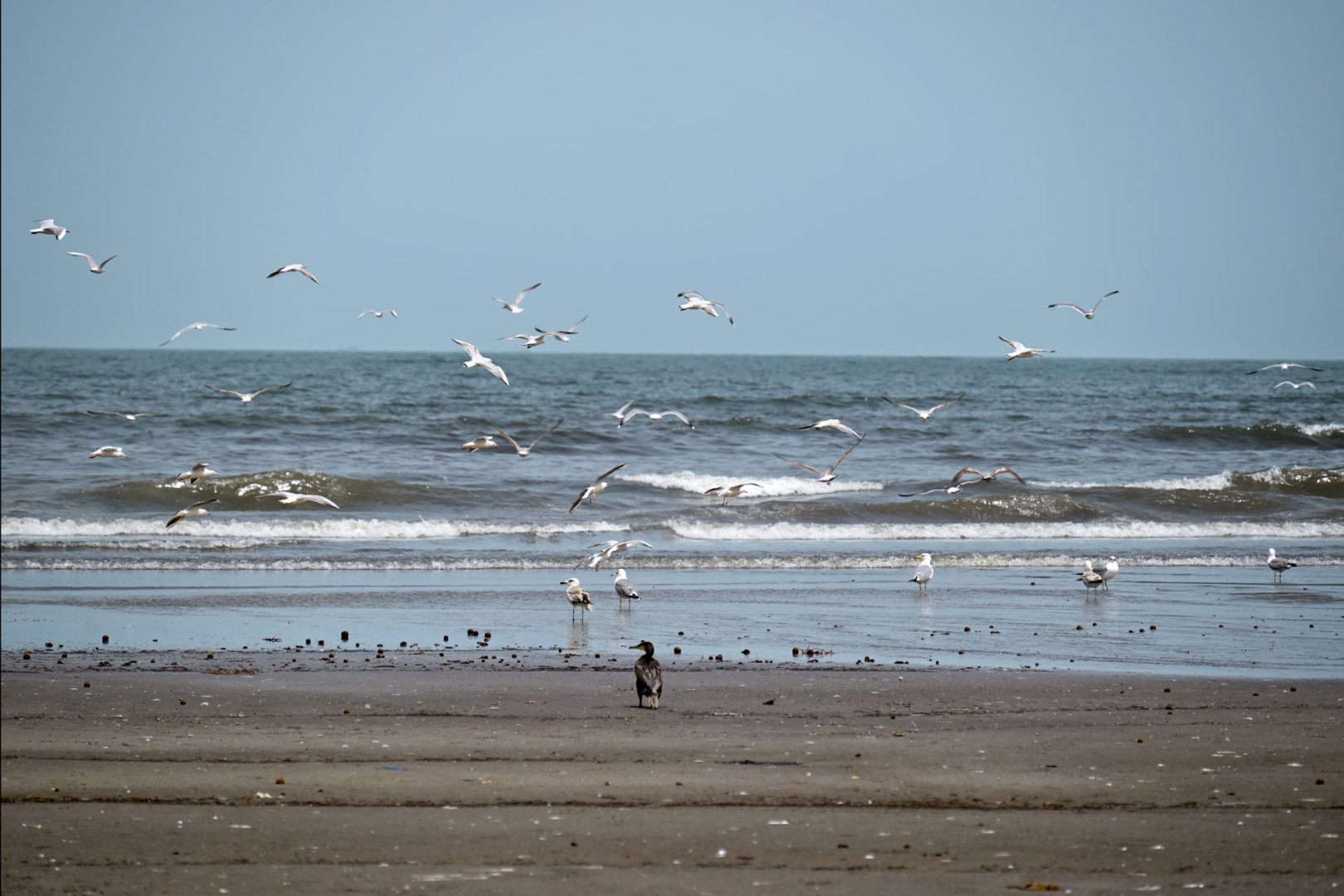
The once white beaches of Gabes are now black, covered in phosphogypsum. “If you do an analysis, you’ll probably find some sand in this,” one sailor joked. All this pollution has a major impact on biodiversity. Gabes, 21 April 2022. Photograph by Morgane Wirtz / Hans Lucas.
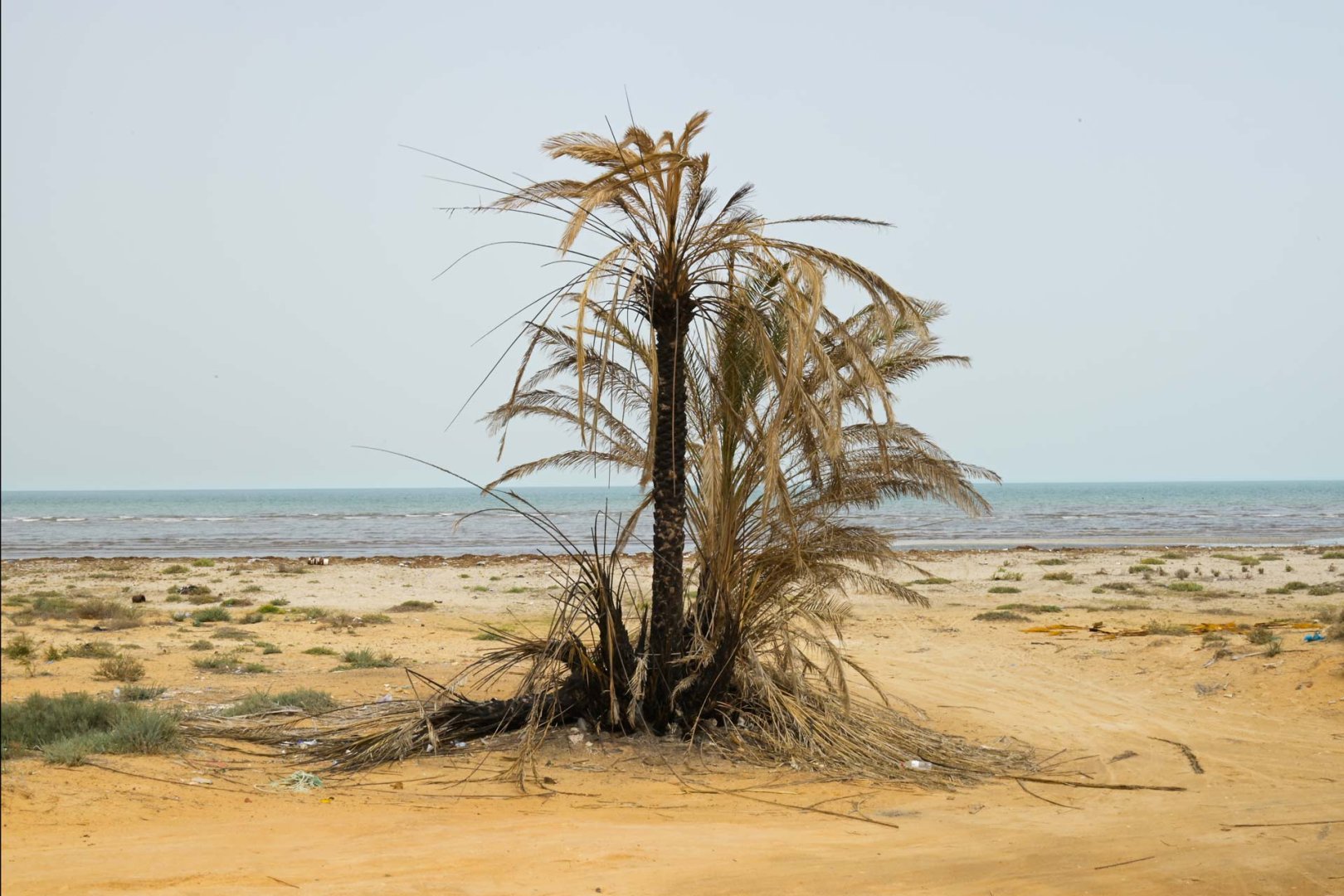
The pollution affects the vegetation and the soil as well as the sea. Pollutants have been found in the leaves and branches of trees throughout the region. A few kilometres from Ghannouch, the Gabès oasis (the only coastal oasis on the Mediterranean Sea), is dried up, decimated by the Groupe Chimique Tunisien. Ghannouch, 20 April 2022. Photograph by Morgane Wirtz / Hans Lucas.
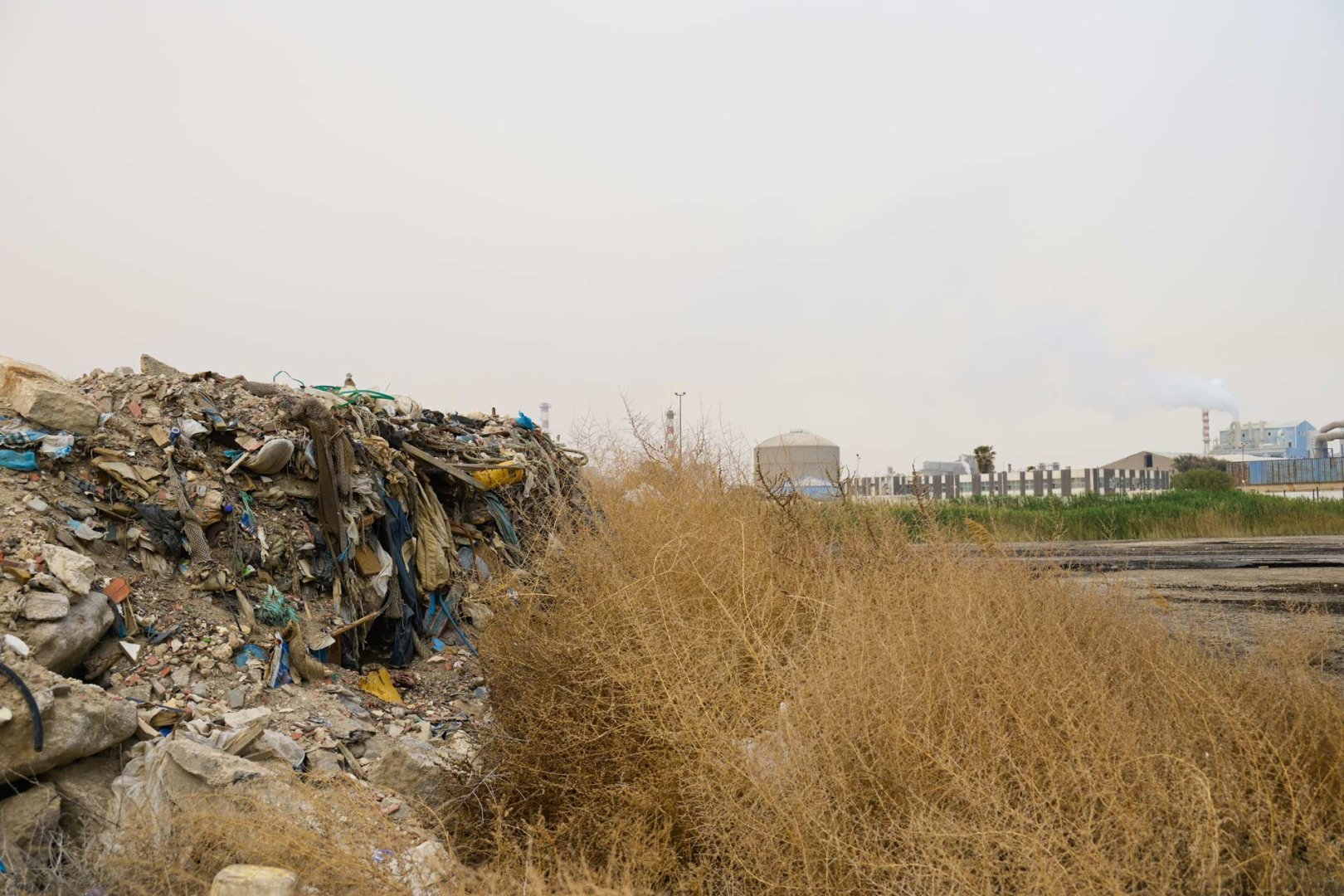
A lot of waste is dumped on the beaches of the Gulf. Gabes, 20 April 2022. Photograph by Morgane Wirtz / Hans Lucas.
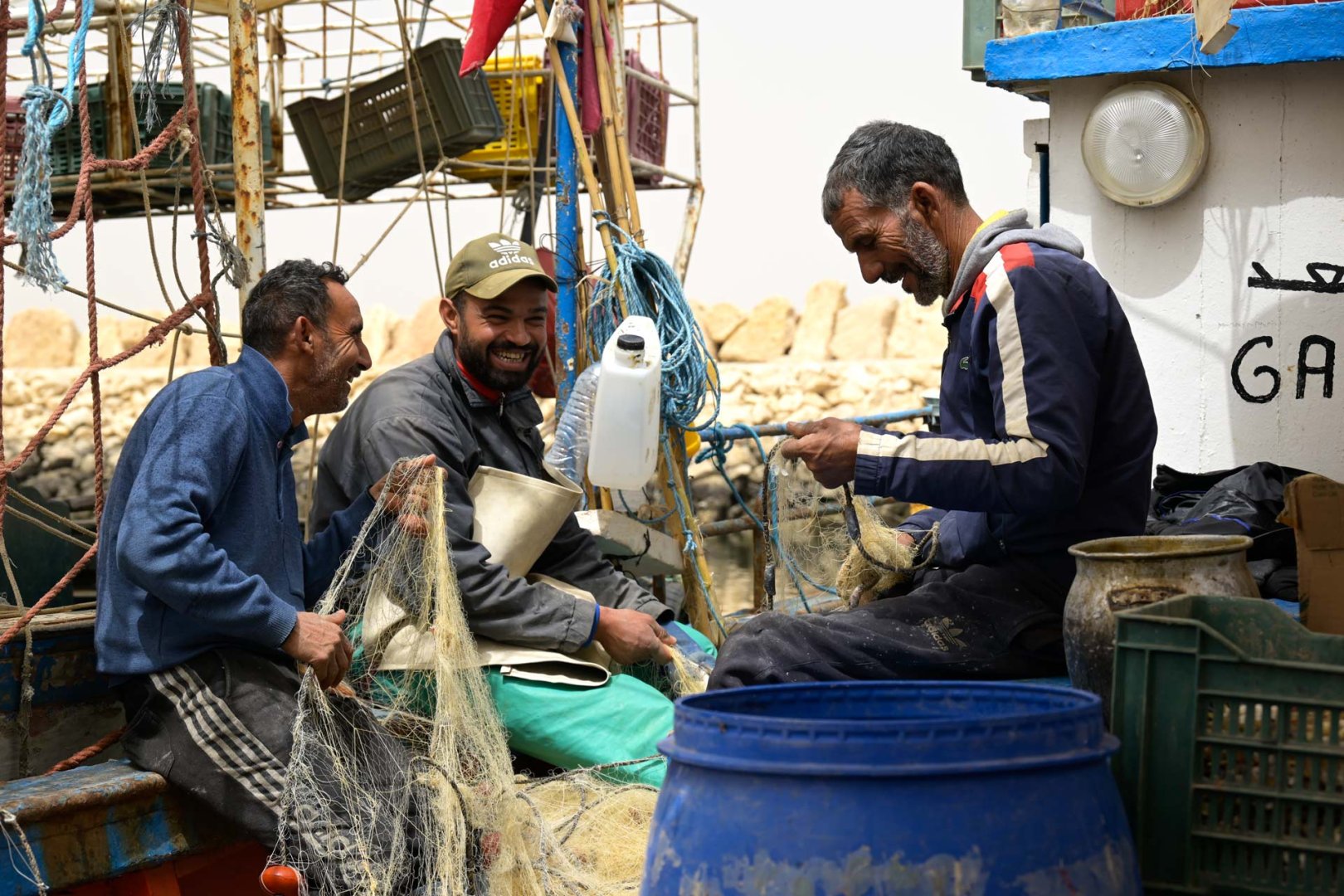
Ammar and his co-workers sort their fishing nets in the Gabes port. Gabes, 21 April 2022. Photograph by Morgane Wirtz / Hans Lucas.
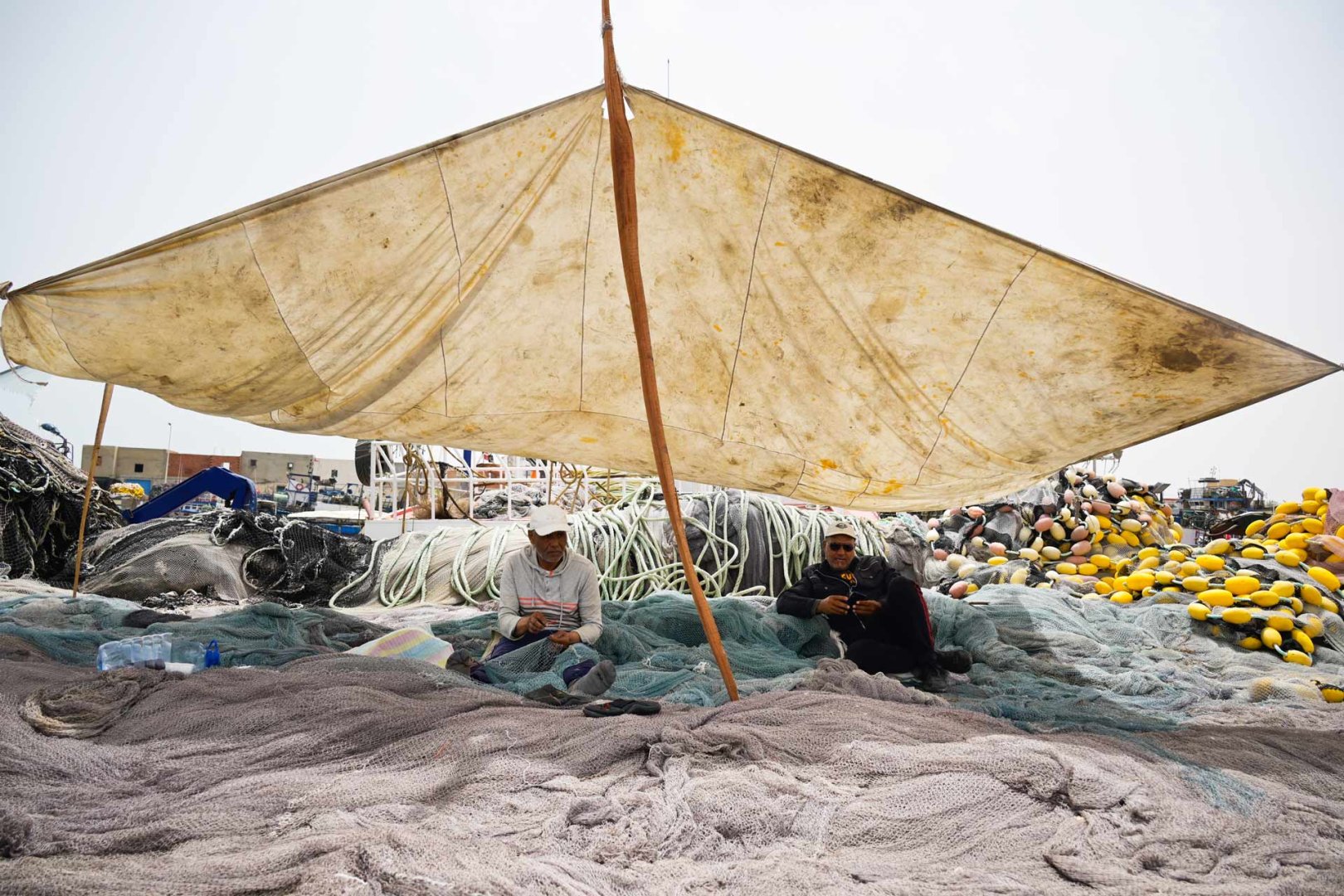
Mongi, a captain in the Gabes port, repairs his nets. “We haven’t passed anything on to our children,” he laments. “Our parents wanted us to become fishermen. But today, we don’t want our children to be fishermen.” Gabes, 21 April 2022. Photograph by Morgane Wirtz / Hans Lucas.
IMS’ reader on environment in the MENA region
The pieces published here tell the story of the way the environment has been understood and questioned by our partners in the MENA region.
